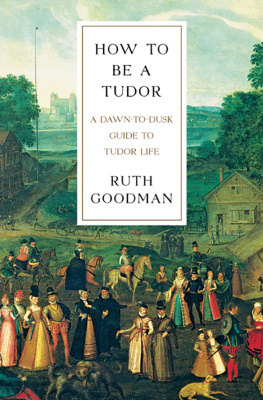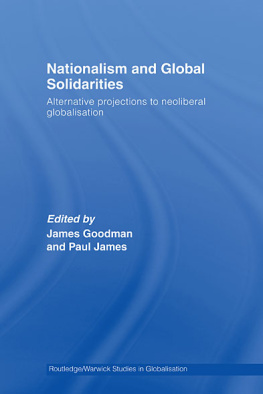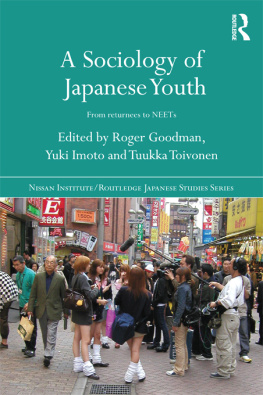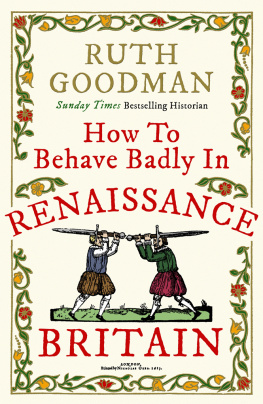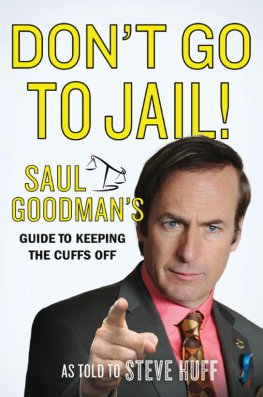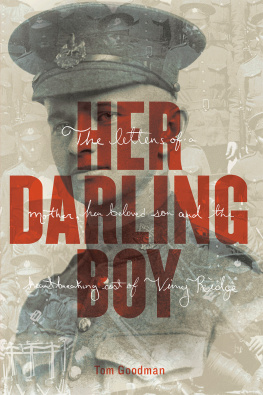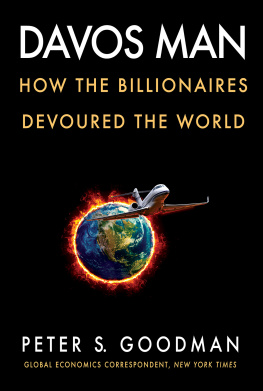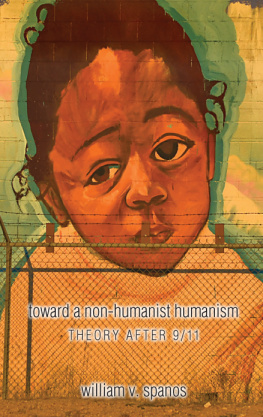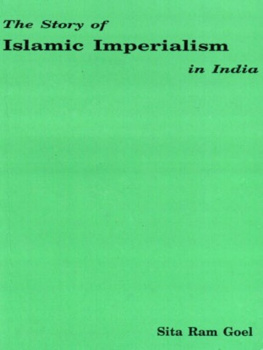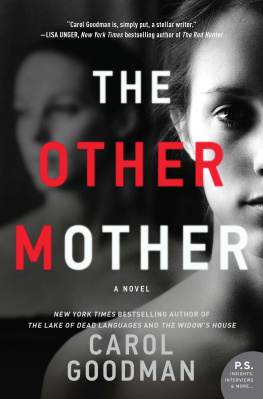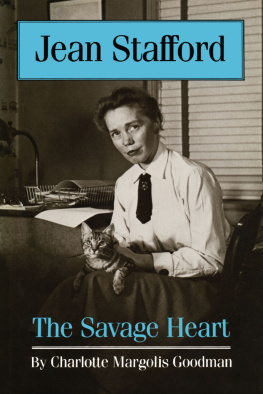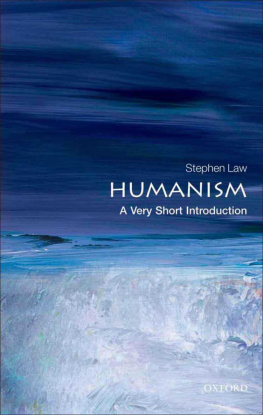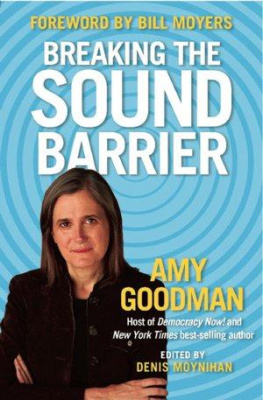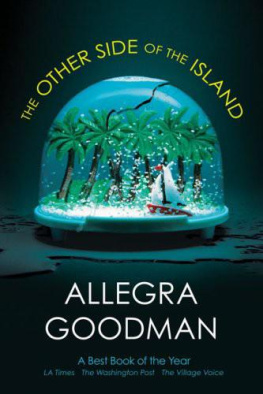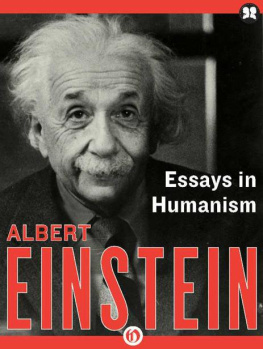Goodman - Islamic Humanism
Here you can read online Goodman - Islamic Humanism full text of the book (entire story) in english for free. Download pdf and epub, get meaning, cover and reviews about this ebook. City: New York;Oxford, year: 2003;2005, publisher: Oxford University Press USA - OSO, genre: Religion. Description of the work, (preface) as well as reviews are available. Best literature library LitArk.com created for fans of good reading and offers a wide selection of genres:
Romance novel
Science fiction
Adventure
Detective
Science
History
Home and family
Prose
Art
Politics
Computer
Non-fiction
Religion
Business
Children
Humor
Choose a favorite category and find really read worthwhile books. Enjoy immersion in the world of imagination, feel the emotions of the characters or learn something new for yourself, make an fascinating discovery.

Islamic Humanism: summary, description and annotation
We offer to read an annotation, description, summary or preface (depends on what the author of the book "Islamic Humanism" wrote himself). If you haven't found the necessary information about the book — write in the comments, we will try to find it.
Goodman: author's other books
Who wrote Islamic Humanism? Find out the surname, the name of the author of the book and a list of all author's works by series.
Islamic Humanism — read online for free the complete book (whole text) full work
Below is the text of the book, divided by pages. System saving the place of the last page read, allows you to conveniently read the book "Islamic Humanism" online for free, without having to search again every time where you left off. Put a bookmark, and you can go to the page where you finished reading at any time.
Font size:
Interval:
Bookmark:
ISLAMIC HUMANISM
LENN E. GOODMAN


Oxford University Press
Oxford New York
Auckland Bangkok Buenos Aires Cape Town Chennai
Dar es Salaam Delhi Hong Kong Istanbul Karachi Kolkata
Kuala Lumpur Madrid Melbourne Mexico City Mumbai Nairobi
So Paolo Shanghai Taipei Tokyo Toronto
Copyright 2003 by Lenn E. Goodman
Published by Oxford University Press, Inc
198 Madison Avenue, New York, New York 10016
www.oup.com
Oxford is a registered trademark of Oxford University Press
All rights reserved. No part of this publication may be reproduced,
stored in a retrieval system, or transmitted, in any form or by any means,
electronic, mechanical, photocopying, recording, or otherwise,
without the prior permission of Oxford University Press.
Library of Congress Cataloging-in-Publication Data
Goodman, Lenn Evan, 1944
Islamic humanism / Lenn E Goodman
p cm
Includes bibliographical references and index
ISBN 0-19-518914-0
1. Islam and humanism. 2. Islam and social problems 3. Human rights
Religious aspectsIslam 4. Philosophy, Islamic I Title
BP190 5 T78 G66 2002
297 26dc21 2002071525
9 8 7 6 5 4 3 2 1
Printed in the United States of America
on acid-free paper
For Bernard Lewis
This book is the product of some forty years study of Arabic and Islamic thought and culture. I wrote my first essays on Ghazl, Ibn Khaldn and Ibn  ufayl in the 1960s, my first book-length treatments of Maimonides and the Ikhwn al-
ufayl in the 1960s, my first book-length treatments of Maimonides and the Ikhwn al- af in the 1970s, and a number of comparative thematic studies of Jewish and Islamic philosophy and literature in the 1980s. In the 90s I published Avicenna, a philosophical appreciation of one of the greatest of the Muslim philosophers, and I began the studies of Arabic universal history writing that are reflected in . I wrote Islamic Humanism during my sabbatical year in 2001, supported by a Fellowship from the National Endowment for the Humanities and a supplemental Research Scholars Grant from Vanderbilt University. Throughout the writing, my bride, Roberta Goodman, has stood at my side. My recent philosophical study, In Defense of Truth: A Pluralistic Approach, was dedicated to her, quite fittingly, in view of the insight and integrity she shows in her work, in her relations, and in her character. The present book is dedicated to Bernard Lewis, the doyen of Arabic and Islamic studies, whose erudition, wit, insight, and versatility as a historian and a scholar of literature are exceeded only by his forthright courage in behalf of truth and understanding in a realm where half-truths and misdirections too often prevail.
af in the 1970s, and a number of comparative thematic studies of Jewish and Islamic philosophy and literature in the 1980s. In the 90s I published Avicenna, a philosophical appreciation of one of the greatest of the Muslim philosophers, and I began the studies of Arabic universal history writing that are reflected in . I wrote Islamic Humanism during my sabbatical year in 2001, supported by a Fellowship from the National Endowment for the Humanities and a supplemental Research Scholars Grant from Vanderbilt University. Throughout the writing, my bride, Roberta Goodman, has stood at my side. My recent philosophical study, In Defense of Truth: A Pluralistic Approach, was dedicated to her, quite fittingly, in view of the insight and integrity she shows in her work, in her relations, and in her character. The present book is dedicated to Bernard Lewis, the doyen of Arabic and Islamic studies, whose erudition, wit, insight, and versatility as a historian and a scholar of literature are exceeded only by his forthright courage in behalf of truth and understanding in a realm where half-truths and misdirections too often prevail.
Islamic Humanism was written for Oxford University Press. It is my third title for them (after God of Abraham and Judaism, Human Rights and Human Values). All were prepared under the astute editorship of Cynthia Read. Fred Denny of the University of Colorado in Boulder, after serving as an anonymous external reader of the preliminary text, made known his identity and expressed his profound understanding of the project I had in hand. He and another reader who remains anonymous made many helpful suggestions, which I have taken to heart.
The first chapter of this book grew from the embryo of the Halmos Lecture I gave in Tel Aviv in 1988. Sasson Somekh, who holds the Halmos Chair of Arabic Literature at Tel Aviv University was my host. A friend since our D. Phil, studies together at Oxford, he encouraged the project that led to the present book, from its inception. I began the relevant work on the interplay of sacred and secular themes in Arabic literature under a fellowship at the East West Center in Honolulu and published an early version in Mustansir Mirs festschrift for James A. Bellamy. The underlying essay is much revised and expanded here.
The second and third chapters grow out of essays I wrote for Brian Carr and Indira Mahalingam, the founders of the journal Asian Philosophy and the editors of the Companion Encyclopedia of Asian Philosphy, where I first tried out some of the language and ideas that are developed here.
The final chapter began its life as my keynote for the international conference on the uses of history at the University of Denver. The conference, organized by Seth Ward, was sponsored by the Institute for Islamic/Judaic Studies, founded by Stanley Wagner and led by S. D. Goitein and William Brinner. It was my privilege to co-chair some of that institutes meetings after Professor Goitein became unable to travel. The work of the institute, which resulted in the publication of several conference volumes and the formation and strengthening of important cross-cultural friendships, was terribly important to me. I attended that last conference to present my keynote (again much expanded and revised here) in October 1996, only days after the death of my first wife, Dr. Madeleine Goodman. I will not forget the strength imparted to me when the Jewish participants joined their voices to mine when I said kaddish in her memory.
The many scholars whose studies, texts, and commentaries contribute to the understanding that underwrites the present book are cited in the notes and bibliography. Among my own contemporaries, teachers, colleagues, friends, or simply authors of superb monographs and essays, particular mention should be made of M. A.-H. Ansari, Mohammed Arkoun, A. F. L. Beeston, J. N. Bell, Clifford Bosworth, Michael Cook, Herbert Davidson, D. M. Dunlop, A. A. Duri, Majid Fakhry, Walter Fischel, Sir Hamilton Gibb, Lois Giffin, S. D. Goitein, Gustave von Grunebaum, Dimitri Gutas, Andras Hamori, Nicholas Heer, George Hourani, Stephen Humphreys, Toshihiko Izutsu, Tarif Khalidi, Joel Kraemer, Bruce Lawrence, Ilse Lichtenstadter, Richard McCarthy, Muhsin Mahdi, James Monroe, Roy Mottahedeh, Eric Ormsby, Frank Peters, Fazlur Rahman, Franz Rosenthal, Everett Rowson, Abdulaziz Sachedina, Ahmad Shboul, M. A. Sherif, Yedida Stillman, Richard Walzer, John Wansbrough, Charles Wendell, Brannon Wheeler, and John A. Williams. From somewhat earlier generations: A. J. Arberry, Miguel Asn Palacios, Henry Farmer, Ignaz Goldziher, Paul Kraus, David Margoliouth, Adam Mez, R. A. Nicholson, Joseph Schacht, William Montgomery Watt, A. J. Wensinck, and Constantine Zurayk.
As I reflect on this little constellation of thinkers who have themselves reflected on the cosmopolitan and humanist traditions of Islam, Im reminded But Absl learns that Hayys independent thoughts and meditations have already brought him to an understanding of the deeper truths that Absls own religion sought to symbolize. That discovery itself is revelatory for Absl: The eyes of his heart were unclosed. His mind caught fire. Reason and tradition were at one within him. All the paths of exegesis lay open before him. His old religious puzzlings were solved; all the obscurities clear. Now he had a heart to understand (Qur n 3:7).
n 3:7).
AJAS | American Journal of Arabic Studies |
AOS | American Oriental Society |
ED | Saadiah Gaon, K. al-Mukhtr f |
Font size:
Interval:
Bookmark:
Similar books «Islamic Humanism»
Look at similar books to Islamic Humanism. We have selected literature similar in name and meaning in the hope of providing readers with more options to find new, interesting, not yet read works.
Discussion, reviews of the book Islamic Humanism and just readers' own opinions. Leave your comments, write what you think about the work, its meaning or the main characters. Specify what exactly you liked and what you didn't like, and why you think so.

